
Fairy Gardening For Real
First, allow me a prediction. Fairy gardening/miniature landscaping is not a fad and can be a profitable long-term category if we ensure customer success.
We have all seen the amazing selection of “fairy garden” miniature hardgoods offered, along with having seen and read that this is one of the most popular trends in our industry. But why? What are customers’ grassroots appeals to what was once called a “fad?”
Our nursery, Mulberry Creek Herb Farm in Huron, Ohio, has been selling fairy gardening/miniature landscaping plants and accessories for 15 years now and, growing each year, these now account for more than $100,000.
As a fellow greenhouse retailer/wholesale grower, here are my observations on the reasons this is a growing trend, which I hope will become a horticultural category:
Reason No. 1: Parents and Grandparents
Moms, easily every garden center’s No. 1 purchasing demographic, lead the charge in fairy gardening as well. This is the dollhouse they had as girls, along with the flowers they love as adults. Now they get to pass this passion on to their daughters (typically, but more on boys later).
They love the creativity and simplicity of this mother-daughter project that does not involve a video/computer game. There are miniature chairs, gazebos, fountains, animals, houses … everything imaginable for them to create this magical world together.
How about plants and the Disney princess themes? Can you think of a better horticultural bonding project? Yes, some are doing it for themselves, including those past raising children as a way to re-bond with their childhood memories, and yes, hopefully their children and grandchildren will take notice. Whatever the motivation, they are “dollhouse/fairy gardening” just the same, and they are looking to you as their product source.
Grandmothers and grandchildren are an additional demographic. We have held several programs with great success. During our annual Fairy Fest in April, grandparents and their grandchildren outnumber any other age group. Often the grandmother was from out of town, was looking for something to do, came to the program, got hooked from the one-hour “Make-&-Take Project” and afterward would send more fairy items to encourage the project and the experience.
Reason No. 2: The Kids
While girls make up the majority of our fairy garden recipients, you’d be surprised how many boys are interested in “delving into elving.” Girls and boys are excited about creating a magical world that is not on a computer, a different world that is not their own. For this group, if we are to reach them as lifelong gardeners, we must offer them a successful first experience.
If we provide plants that grow too quickly and too large, thereby dying, this will result in a “been there, killed that” mentality. Instead, provide or source plants that will not overgrow the accessories and containers. In addition, just as we do with all other combo containers, make sure the plants are horticulturally compatible (e.g. no little cactus planted together with mini African violets).
Although stereotypical, girls like flowers and boys like tough/dangerous things. Boys first: A great way to introduce boys to horticulture is through cactus and succulents. That was my personal “gateway drug” to this industry. Not only are cactus and succulents nearly kill-proof, but they also look exotic and the cactus even looks dangerous (something they could scare their sister with)! By combining these with plastic dinosaurs, Wild-West themes, Bob the Builder or whatever plastic-ville passion they have, we can cultivate a growing audience (puns intended).
Girls: They are easier, as they like flowers.
Reason No. 3: Small Space Gardening
These are the condo/apartment/”my garden is filled and just don’t have room for another” group with which we have an opportunity to sell a few more plants.
Because everything is small, profits can be huge. Which would you rather sell: five to 12 miniatures at $4 to $12 each or a single $14.95 basket?
Be it a 30-something’s balcony, a grandmother’s porch or a restaurant’s patio or tables, container gardening is a large trend in gardening. With miniature gardening, we maximize its dollar value.
The miniatures take less space, have a greater per-square-foot profit margin and the box stores don’t carry they them in the same way.
Reason No. 4: IGC Strength
The box stores have started offering beginner “fairy gardens.” And this may be a good thing, as long as these growers provide appropriate plants that are horticulturally compatable (sun versus shade lovers) and survive for most of the summer. If these customers see the value in this category, they will find your store, which offers so many more items and true miniature-scaled plants than the box stores ever could.
With a potting bench for make-your-own stations, parties, classes, true miniature plants and a large selection of accessories, you can truly have a great IGC category that is not possible for the box store to duplicate.
Just make sure you have everything to complete projects. This includes sheet moss, a wide variety of different fine stones, some larger stones for boulders, small bathroom tiles for pathways and walls and wide shallow containers.
Here is our industry’s greatest opportunity to capture the next generation of gardeners. The hardgoods people are doing a great job of producing and promoting the miniature garden furniture, gazebos, stepping stone, walls and, yes, even full castles.
It’s time to fill out your customers’ gardens with tons of tiny plants for a complete fairy display. And I didn’t even touch on cross merchandizing these hardworking miniature specimens for bonsai and outdoor garden railroads.







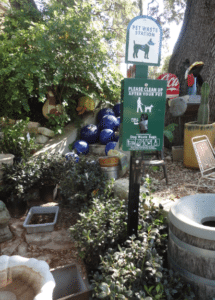
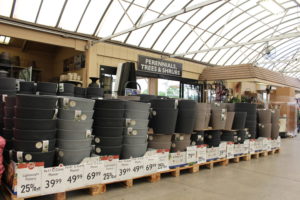
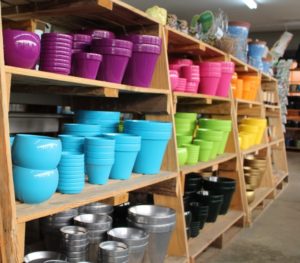
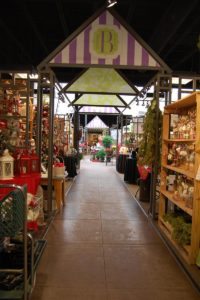
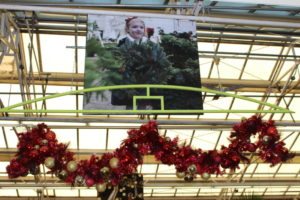
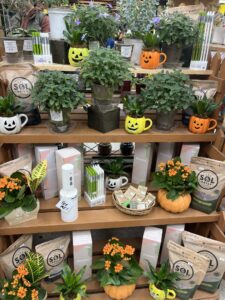
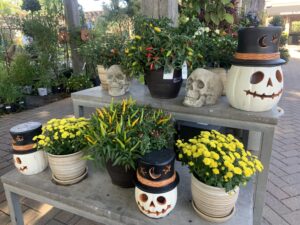

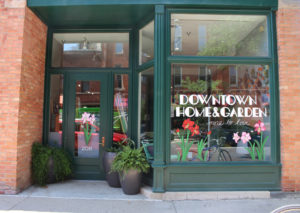
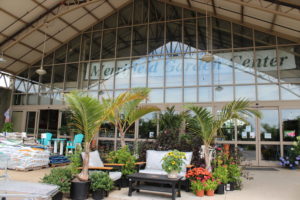
 Videos
Videos





